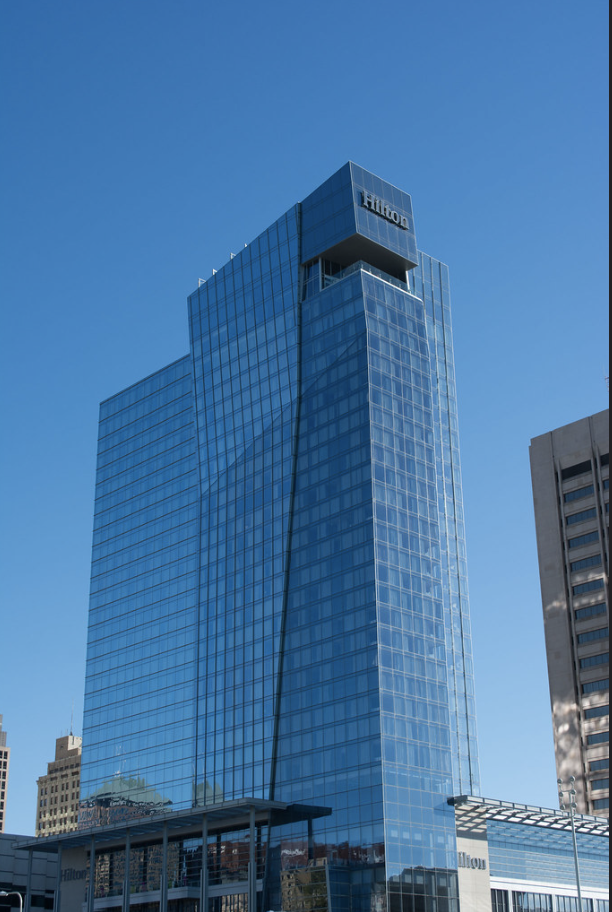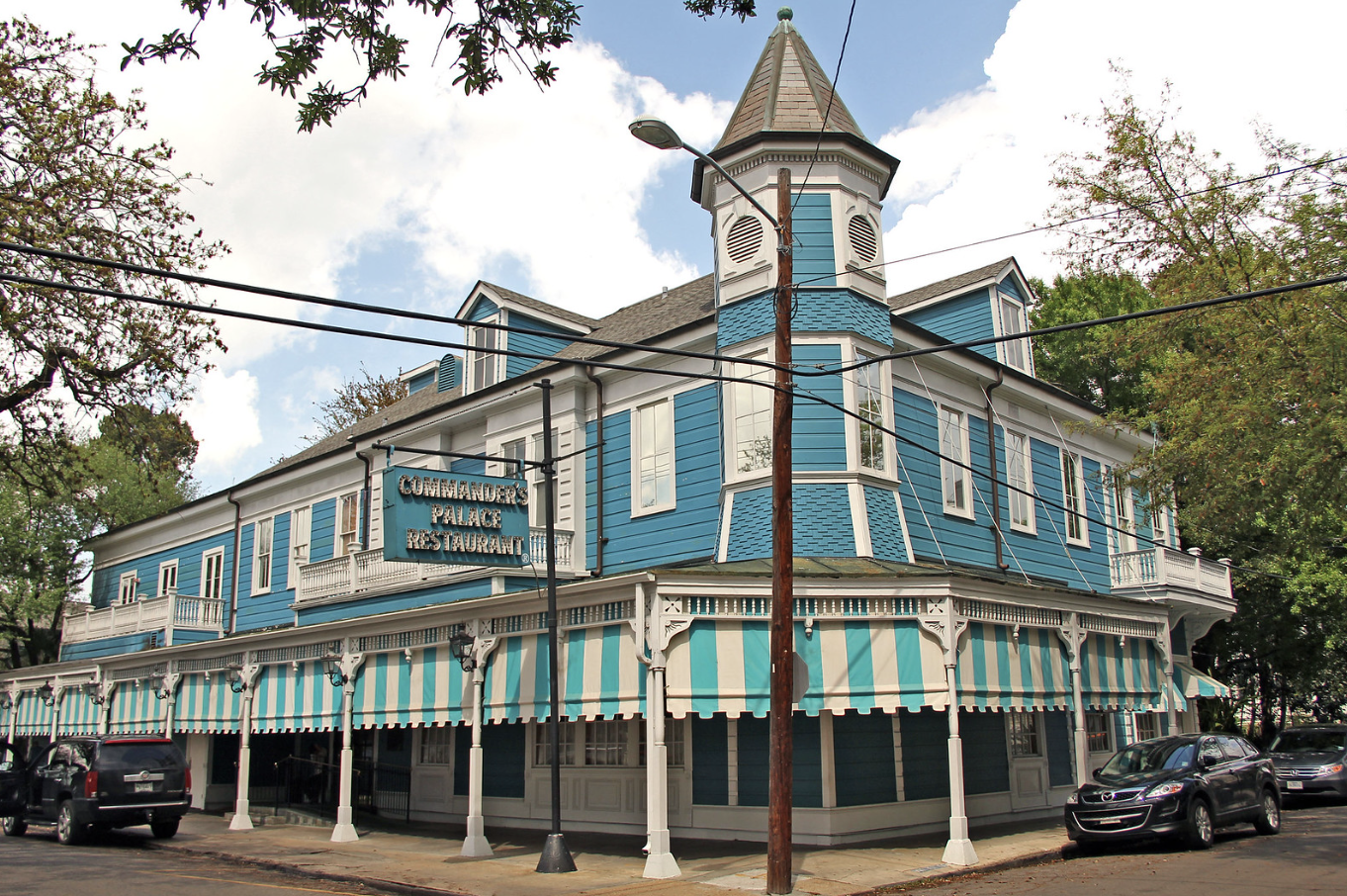Part I: The Problem
Tourism brings in massive economic gains globally, generating 10 percent of the global GDP. Tourism accounts for one out of every 10 jobs and 30 percent of international trade in services, according to the United Nations World Tourism Organization. In 2006, international tourism receipts generated $8.8 trillion, and tourism was attributed as the world’s largest employer, accounting for 200 million jobs or one in every 12 worldwide. More so, in 125 of the world’s 170 countries, tourism plays a major economic role (Honey). However, the majority of experience for those working in the tourism industry as service workers is low-paying service-level employment as maids, waiters, and drivers that are often subject to seasonal fluctuations of travel (Gleason). Vacation cruises are among the fastest-growing and most profitable segments of the tourism industry. The cruise industry is a 40 billion dollar industry in the United States alone; yet, the service workers on these ships have historically lived off of menial wages as low as 53 cents, living off tips with a monthly token salary of 50 dollars (Becker).
The tourism industry experiences a high percentage of economic leakage as well as unequal benefit distribution caused by inequitable and unjust structures. Ironically, local participation is believed to be able to create larger and more balanced economic opportunities for the local poor and generally increase attitudes towards tourism and local tolerance, benefitting all of those involved (Tosun).

Service worker (Photo by Andrea Piacquadio)
According to a Florida State University study, tourism employees are the lowest paid of all workers regardless of the fact that tourism in Florida is the leading industry. In Florida, the tourism industry supports 1.5 million jobs and has a yearly economic impact of 86 billion. More so, within 12 industries, the average weekly wage was $710, compared to the menial $311 that leisure and hospitality workers made (Heller). Tourism as an economic development strategy produces low-wage jobs, little career opportunities, and seasonal and part-time jobs that leave service workers under-employed. New Orleans is no stranger to the wrath of a tourism-dependent economy. As New Orleanian author Anthony Stanonis notes, tourism in New Orleans developed based on the enhancement of images associated with New Orleans: “the elegance of the Creoles, the skill of the jazzmen, the seductiveness of courtesans, the joy of Mardi Gras maskers”… and “the romance and exoticism of the French Quarter.” However, many who call New Orleans home or once did recognize its transition into a theme park to amuse visitors. Scholars note that after one peel back, the veneer of prosperity lays massive problems such as a poorly-educated, low-skilled workforce, decaying neighborhoods and schools, rising poverty, and unemployment rates (Souther).
Educational attainment in New Orleans scores lower than in the rest of the country, with nearly half of the region’s population obtaining a high school diploma or less. In addition, only one-quarter of New Orleans residents have some college education, and just over a quarter have at least a bachelor’s degree. In addition, around 4 percent of occupations (3,200 positions) require any education beyond high school, and the majority of the region’s jobs, 53,600 or 74 percent, require no educational credentials at all. Following Hurricane Katrina in 2005 and with the development of a charter school system, New Orleans boasted about increased graduation rates due to an increase in per-pupil spending (Strauss). However, as noted by Louisiana teacher and researcher Merceded Schneider, inequities continue to exist in the school system, with black public school students still trying to have what white public school students seem to come by effortlessly. According to The Lower 9th Ward Living Museum, nearly nine in ten white New Orleans students attend private schools. On the flip side, students of color are steered into lower-performing schools. It was even noted that after Katrina, only one out of the seven public schools had reopened in the Lower Ninth Ward. In addition, unemployment and labor force participation rates score worse than the rest of the country.

Minority groups disproportionately fill low-paying, low-status jobs in hotels (Photo by: cottonbro)
Unemployment is higher in the New Orleans region than in the rest of the country, with 39,000 residents of the New Orleans region being unemployed in July of 2018. More so, regional labor force participation was 57 percent in May 2018, lower than that of the national labor force participation rate, which was 60.8 percent in 2017. In New Orleans, about $200 million a year in tax revenue goes to a mix of tourist groups. A tourism report found that in Orleans Parish, there were 15,458 jobs counted as part of the hospitality and tourism cluster, with the bulk of these jobs in hotels. In the city’s 161 hotels, there are around 11,647 service workers with jobs ranging from mechanical engineering and housekeeping. Around 68 percent of the city’s housekeepers are Black, and 13 percent are Hispanic, with about 57 percent of hotel industry workers being female. Amongst the female portion of the workforce, the lowest-paying jobs such as housekeeping, desk clerks, and waitstaff often fall onto women. In New Orleans, the tipped minimum wage in Louisiana is $2.13 an hour. Additionally, the report estimates that full-service restaurant jobs in New Orleans support average earnings of $29,464 a year, including tips. Similar to hotels, the highest-paying restaurant jobs are disproportionately filled by white workers (Clark, Price, and Yawn). Development that occurs on the backs of under-served people perpetuates cycles of inequality and hinders sustainable development.
Part II: The Solution
In 2016, Hilton opened up the Hilton Cleveland Downtown, which is the third redevelopment of one of Cleveland’s landmarks. It will aid in attracting businesses and visitors to Cleveland, stimulate economic growth, and foster job creation. The opening sparked discourse due to its unusual hiring policies before opening (Heath and Starr). Hilton Cleveland Downtown declared that first preference would be given to locals, despite lesser hospitality experience. In addition, the Cleveland-based nonprofit Towards Employment, which is devoted to helping struggling individuals find work, would supply many of these hires.
According to the Center For Community Solutions, in 2016, Cleveland had a poverty rate of around 36.2%. Months before the grand opening of this new flashy hotel, Hilton began to hold job fairs with the pledge to hire local job seekers rather than staff of other hotels. Teri Agosta, general manager of the Hilton Cleveland Downtown, stated: “We have a responsibility to Cleveland. A responsibility to the state and to the city to really hire from the demographic that is here, and we took it very seriously.”
After opening, it was found that 87 percent of hires did not have previous experience in hospitality. Hilton nipped the lack of experience in the bud by kicking off their employment with a solid week of training. Agosta also recognized that job candidates often have barriers to employment, which the Hilton combated through their partnership with Towards Employment.
Although many have qualms with Amazon business tycoon Jeff Bezos, most can agree with him when he says, “You can be competitor-focused, you can be product-focused, you can be technology-focused, you can be business-model focused… but in my view, obsessive customer focus is by far the most protective of Day 1 vitality”.
More so, research has shown that achieving happy customers often results in engaged and happy employees. In the realm of travel and tourism, Southwest and Hilton top the list when it comes to finding a “sweet spot” between high employee satisfaction paired with high customer satisfaction (Hyken). In addition, it has been found that there are financial benefits to putting employees first (Chamberlain and Zhao). Hilton Hotels has pioneered a shift in the amenities available to service employees working in areas such as food service, housekeeping, and customer service and was recognized by Fortune magazine as #1 on the 100 Best Companies to Work For in the U.S. list.

Hilton Cleveland Downtown (Photo by: Tim Evanson)
Hilton has committed to improving daily experiences for service workers and claims an inclusive culture when it comes to LGBTQ+ communities and veterans. It has even enacted local community service programs and even a soap recycling program. Communication is key in the Hilton workplace, which has been greatly improved by technology. Hilton enacts several digital technologies, such as the ability to be mobile, with 95% of Hilton employees moving about and not sitting consistently at a desk as well as having constant access to HR or workforce applications seamlessly.
The company also uses digital chatbots for repetitive and small-detail questions and concerns, which leaves more time for HR to spend on high-value tasks that require white-glove human service. Hilton has also deployed virtual reality training to employees in order for them to acquaint themselves with the workplace. Hilton is partnering with continuing education firm Guild Education to provide employees with new educational credentials (Sperance). These credentials include English language learning, digital literacy, high school completion, professional certifications in areas like culinary skills and data analytics, and college degrees. Hilton will pay the expenses, and the program aims to get more people in the labor force, particularly in hotels, and to offer a pathway to higher-paying jobs with credential requirements. The efforts of Hilton Cleveland Downtown aided the community; however, poverty rates still remain high, approximately 32% in 2020, down 3.8% from rates in 2016 before the opening of the hotel.
Although poverty rates remain extremely high in Cleveland, Hilton’s consultation of organizations centered around primary stakeholders in their hiring process and general care for educating employees shows promising ethics when it comes to the hospitality industry. Although Hilton is just a small employing enterprise in Cleveland, it aids the greater goal promoted by Towards Employment. In 2017, Towards Employment reported that 562 people found good jobs, with 335 of those having criminal backgrounds. In addition, 265 people increased their skills via internships or technical training, and 134 people advanced on the job with an average wage increase of $2 per hour. Terry, a bellman at the hotel, possesses 30 years of customer service, but a misdemeanor in his past hindered his search for employment. Towards Employment and Hilton gave him a well-deserved second chance. Stanley, who works to keep the public spaces in Hilton up to par, noted how working at the Hilton changed his life. Stanley has health care, including dental and vision coverage, paid time off, and a 401k. Members also get free meals and uniforms designed for comfort. However, one of the biggest benefits, according to Stanley, is the positive work environment; “we all go by first names here, like family. It’s like one big family”. Agosta notes that the risk and effort put into employees fosters higher work ethic and productivity” (Moses).
Part III: Implementation
Similar to the Cleveland scenario, bringing a non-profit like Towards Employment into New Orleans would not only be beneficial for creating job opportunities that include upward mobility and education but would also benefit New Orleans tourism. New Orleans’ tourism industry contains numerous stakeholders, but the main ones are the primary stakeholders (citizens of New Orleans) as well as the government and the tourism kingpins of New Orleans.
Warren Reuther Jr. is the president and CEO of Hospitality Enterprises and BigEasy.com. Hospitality Enterprises comprises Destination Management, Inc, such as the Jean Lafitte Swamp Tours, Airport Shuttle Inc., Lodging Inc., New Orleans Paddlewheels, Big Easy Visitor Magazine, and more. Similarly, the Brennan Family, John Besh, and BRG own countless infamous New Orleans restaurants, such as Commander’s Palace, Tableau, Domenica, Luke, Bayou Bar, and more.

Commanders Palance (Photo by: Craig Sanders)
Due to the massive amounts of wealth accrued by these tourism tycoons, change will be most plausible in a bottom-up manner. During the pandemic, the hospitality sector was the industry hardest hit by the pandemic nationwide. Trinice Dyer, a New Orleans Native, lost her job at New Orleans Hilton as a result. However, Dryer and her colleagues re-gained their jobs because the New Orleans Hilton is unionized and affiliated with United Here Local 23 as of 2017. Due to the unionization of the hotel, Dryer and her coworkers received raises, protection from capricious firings, and a guarantee that laid-off workers would be offered their old jobs back when the jobs became available.
Empowering employees fuels creativity, and extending goodwill to communities generates positive change, as seen with the Hilton Hotels chain.
Successes, no matter how huge, display the power that local individuals have in collective action, such as through unionization. Additionally, hotel partnerships with nonprofits that provide resources and aid for those struggling to find employment for various reasons should be implemented, such as with the Hilton. Community engagement is at the heart of tourism in New Orleans. For a city that prides itself on selling an image of the “authentic” New Orleans, community is key. Grassroots movements and organizations are the most promising solutions for demanding change in the disproportionate experiences of those in New Orleans’s tourism industry. Additionally, companies should strive to implement programs, benefits, and training like those implemented in the Hilton Hotel chain. Travel agencies can also aid in helping New Orleans escape cyclical inequality in the tourism industry by promoting local businesses. Here, the incentive would be reallocating money to the local economy rather than tycoons such as Warren Reuther Jr. and the Brennan Family.
Works Cited
Becker, Elizabeth. “Smaller Footprints on the World’s Welcome Mats.” The New York Times, The
New York Times, 5 Jan. 2015, www.nytimes.com/roomfordebate/2014/12/29/how-tourists-can-do-less-harm-than-good/cruise-ships-are-unregulated-trouble-on-the-high-seas.
Chamberlain, Andrew, and Daniel Zhao. “The Key to Happy Customers? Happy Employees.”
Harvard Business Review, 19 Aug. 2019, hbr.org/2019/08/the-key-to-happy-customers-happy-employees.
Gleason, Katie. “Is Tourism a Low-Income Industry? Evidence from Three Coastal Regions.”
The Journalist’s Resource, 3 Dec. 2020, journalistsresource.org/economics/tourism-industry-wages-u-s/.
Heath, C., and K. Starr. “Leading Change through Employee Empowerment.” Fortune, 2018,
partneredcontent.fortune.com/hilton/the-hilton-effect/leading-change-through-employee-empowerment.html.
Heller, Dave. “FSU Study Finds Tourism Industry Pays Lowest Wages Nationwide.” Florida
State University News, 8 Aug. 2019, news.fsu.edu/news/business-law-policy/2019/08/08/fsu-study-finds-tourism-industry-pays-lowest-wages-nationwide/.
Honey, Martha. “Community Conservation and Early Ecotourism.” Environment, vol. 51, no. 1,
2009, pp. 46-56. ProQuest, http://libproxy.tulane.edu:2048/login?url=https://www.proquest.com/scholarly-journals/community-conservation-early-ecotourism/docview/224023720/se-2?accountid=14437.
Hyken, Shep. “How Happy Employees Make Happy Customers.” Forbes, Forbes Magazine, 10
Dec. 2021, www.forbes.com/sites/shephyken/2017/05/27/how-happy-employees-make-happy-customers/?sh=1055206d5c35.
Maria Clark, Todd A. Price and Andrew Yawn. How the New Orleans Tourism Industry
Perpetuates Its Glaring Racial Wealth Gap, The Tennessean, 17 Sept. 2021, www.tennessean.com/in-depth/news/american-south/2021/07/15/how-new-orleans-tourism-industry-perpetuates-glaring-racial-wealth-gap/7779563002/.
Moses, Susan. “Cleveland Job Seekers Find Second Chances and New Careers.” Wkyc.com, 24
Apr. 2017, www.wkyc.com/article/money/economy/possible-u/cleveland-job-seekers-find-second-chances-and-new-careers/95-429584313.
Sperance, Cameron. “Hilton’s Latest Employee Benefit Leans into the Labor Shortage Crisis.”
Skift, 1 Apr. 2022, skift.com/2022/01/19/hiltons-latest-employee-benefit-leans-into-the-labor-shortage-crisis/.
Strauss, Valerie. “Analysis | the Real Story of New Orleans and Its Charter Schools.” The
Washington Post, WP Company, 4 Sept. 2018, www.washingtonpost.com/education/2018/09/04/real-story-new-orleans-its-charter-schools/.
Tosun, Cevat. “Expected Nature of Community Participation in Tourism Development.” Tourism
Management, Pergamon, 25 Feb. 2005,www.sciencedirect.com/science/article/pii/S0261517705000130.
 NOLAbeings Multimedia artist Claire Bangser created NOLAbeings as a portrait-based story project that marries...
NOLAbeings Multimedia artist Claire Bangser created NOLAbeings as a portrait-based story project that marries...  Voodoo in New Orleans: Reviving history: New Orleans fortune telling This article takes a deep dive into the history of Voodoo in New Orleans, its hybridization with Catholicism, and its present-day place in the city's culture. The author visits fortune-tellers in the French Quarter, using their guidance as a tool for introspection rather than a deterministic predictor of the future. Through her experiences in New Orleans, the author feels a mystical connection to both the past and the future.
Voodoo in New Orleans: Reviving history: New Orleans fortune telling This article takes a deep dive into the history of Voodoo in New Orleans, its hybridization with Catholicism, and its present-day place in the city's culture. The author visits fortune-tellers in the French Quarter, using their guidance as a tool for introspection rather than a deterministic predictor of the future. Through her experiences in New Orleans, the author feels a mystical connection to both the past and the future. 